Related Research Articles
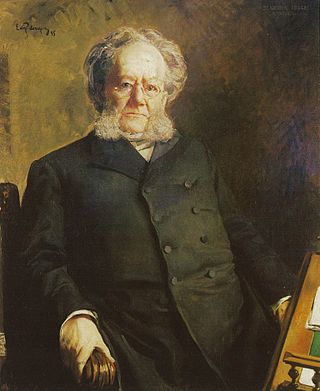
Henrik Johan Ibsen was a Norwegian playwright and theatre director. As one of the founders of modernism in theatre, Ibsen is often referred to as "the father of realism" and the most influential playwright of the 19th century, as well of one of the most influential playwrights in Western literature more generally. His major works include Brand, Peer Gynt, Emperor and Galilean, A Doll's House, Ghosts, An Enemy of the People, The Wild Duck, Rosmersholm, Hedda Gabler, The Master Builder, and When We Dead Awaken. Ibsen is the most frequently performed dramatist in the world after Shakespeare, and A Doll's House was the world's most performed play in 2006.
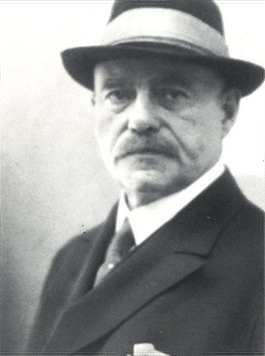
Hermann Sudermann was a German dramatist and novelist.
This article contains information about the literary events and publications of 1889.
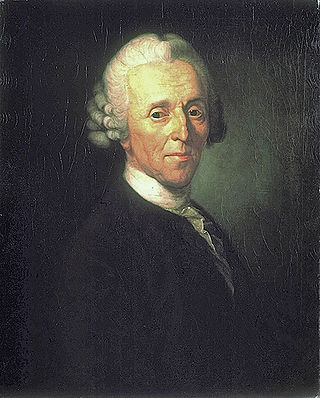
Christian Fürchtegott Gellert was a German poet, one of the forerunners of the golden age of German literature that was ushered in by Lessing.

An Enemy of the People is an 1882 play by Norwegian playwright Henrik Ibsen that delves into the conflict between personal integrity and societal norms. The play centers on Dr. Thomas Stockmann, who discovers a serious contamination issue in his town's new spas, endangering public health. His courageous decision to expose this truth brings severe backlash from local leaders, including his brother Peter Stockmann, who is a powerful political figure in the town.
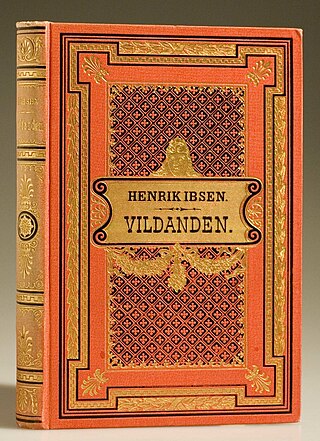
The Wild Duck is an 1884 play by the Norwegian playwright Henrik Ibsen. It explores the complexities of truth and illusion through the story of a family torn apart by secrets and the intrusion of an idealistic outsider. It focuses on the Ekdal family, whose fragile peace is shattered by Gregers Werle, an idealist who insists on exposing hidden truths, leading to tragic consequences. The play was written in a realistic style, but literary scholars have pointed out the play's kinship with symbolism. It blends themes such as deception, betrayal, and the disillusionment of modern life with moments of comedy and satire, and is considered the first modern masterpiece in the genre of tragicomedy. The Wild Duck and Rosmersholm are "often to be observed in the critics' estimates vying with each other as rivals for the top place among Ibsen's works".
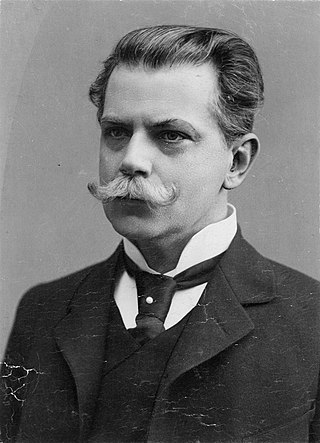
Sigurd Ibsen was a Norwegian writer, lawyer and statesman, who served as the prime minister of Norway in Stockholm (1903–1905) and played a central role in the dissolution of the union between Norway and Sweden in 1905.
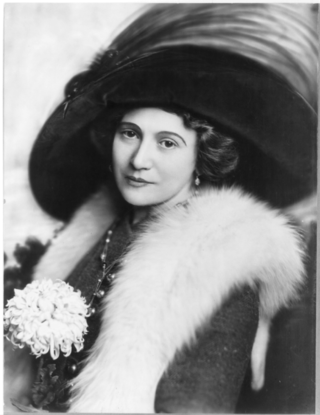
Bertha Kalich was a Jewish-American actress. Though she was well-established as an entertainer in Eastern Europe, she is best remembered as one of the several "larger-than-life" figures that dominated New York stages during the "Golden Age" of American Yiddish Theatre during the late nineteenth and early twentieth century. Historians estimate that, during her career, Kalich performed more than 125 different roles in seven different languages.

The Lost Honour of Katharina Blum, or: how violence develops and where it can lead is a 1974 novel by Heinrich Böll.

Vera Fyodorovna Komissarzhevskaya was one of the most celebrated actresses and theatre managers of the late Russian Empire. She made her professional debut in 1893, after having acted as an amateur at Constantin Stanislavsky's Society of Art and Literature. She is probably best known today for originating the role of Nina in the ill-fated premiere of Anton Chekhov's The Seagull, at the Alexandrinsky Theatre in Saint Petersburg in 1896. Though the production was deemed an utter failure, Komissarzhevskaya's performance was highly praised.
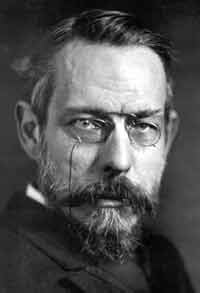
James Brander Matthews was an American academic, writer and literary critic. He was the first full-time professor of dramatic literature at Columbia University in New York and played a significant role in establishing theater as a subject worthy of formal study by academics. His interests ranged from Shakespeare, Molière, and Ibsen to French boulevard comedies, folk theater, and the new realism of his own time.

James Gibbons Huneker was an American art, book, music, and theater critic. A colorful individual and an ambitious writer, he was "an American with a great mission," in the words of his friend, the critic Benjamin De Casseres, and that mission was to educate Americans about the best cultural achievements, native and European, of his time. From 1892 to 1899, he was the husband of the sculptor Clio Hinton.

Rosmersholm is an 1886 play written by Norwegian playwright Henrik Ibsen. It tells the story of Johannes Rosmer, an aristocratic former clergyman and owner of the Rosmersholm manor who is haunted by his wife's suicide and his own idealistic desires for societal reform, and Rebecca West, a strong-willed companion who challenges his convictions, leading to a deep exploration of morality, political activism, and the struggle for personal and social change amidst a backdrop of intense personal and political turmoil. Rosmersholm has been described as one of Ibsen's darkest, most complex, subtle, beautiful, mystical, multilayered and ambiguous plays. The play explores the tension between old and new, between liberation and servitude, between narratives, action or inaction, and of "what to do with ourselves when the world collapses around us." Rosmersholm and The Wild Duck are "often to be observed in the critics' estimates vying with each other as rivals for the top place among Ibsen's works."
Max Bernstein was a German art and theatre critic and author. He was the husband of Elsa Bernstein.

Siegfried Jacobsohn was a German journalist, editor and theatre critic. In 1905 he founded the magazine Die Schaubühne and in 1918 renamed it Die Weltbühne, of which he remained editor of until his death.

Maria Filotti was a Romanian actress. She was described as one of the "prestigious actors of the great realistic school" and the "directress" of a theater "that made an important contribution to transmitting the experience from one generation to the next."
Heimat (Home) is an 1893 play by the German dramatist Hermann Sudermann. The play, either in the original German or in translations, was commonly also known as Magda, the name of the heroine. It was thought by some to be the most widely known and the most successful drama of the end of the 19th century.

Knud Plesner Ibsen was a Norwegian merchant from the city of Skien and the father of the playwright Henrik Ibsen. He is widely considered the model for many central characters in his son's plays, including Jon Gynt in Peer Gynt and Old Ekdahl in The Wild Duck. Through the Paus family—the family of Knud's stepfather Ole Paus and Marichen's mother Hedevig—Knud was raised as a close relative of his would-be wife Marichen Altenburg, although they were not closely related biologically.

The Excursion to Tilsit is a 1917 collection of short stories or novellas by the German writer Hermann Sudermann. Its German title is Litauische Geschichten, which means "Lithuanian stories". The book consists of four stories set in rural Lithuania in the mid 19th century. It was published in English in 1930, translated by Lewis Galantière.

Fyodor Alexandrovich Kumanin was a publisher, theatre critic and translator from the Russian Empire.
References
- ↑ Grange, William (2015). "Ehre, Die (Honor)". Historical Dictionary of German Theater. Lanham, Maryland: Rowman & Littlefield. p. 134. ISBN 978-1-4422-5019-2.
- 1 2 Huneker, James (1905). "Hermann Sudermann". Iconoclasts. New York City: Charles Scribner's Sons.
- ↑ "Verfilmungen" (in German). Hermann Sudermann Stiftung. Retrieved 2016-03-08.